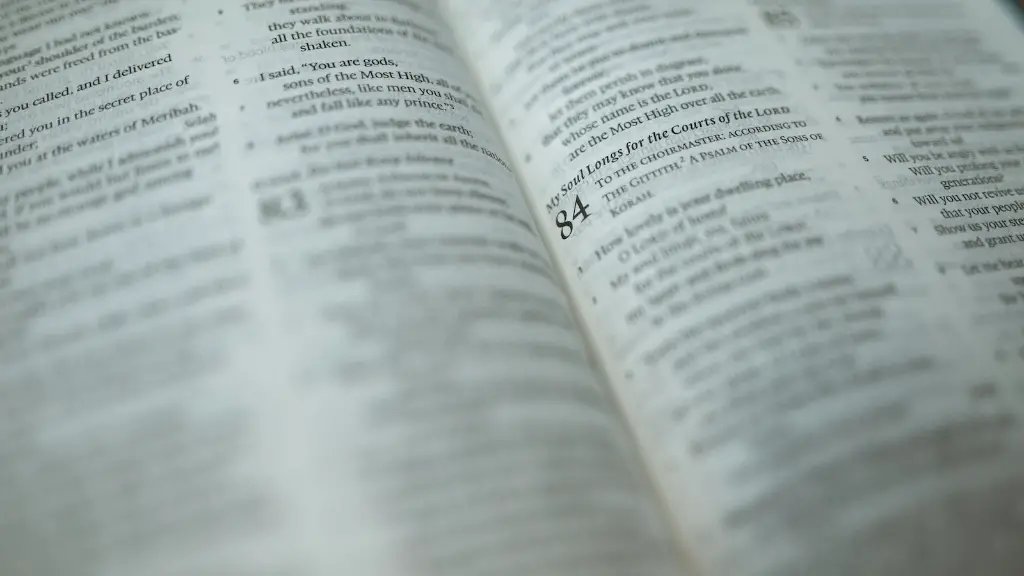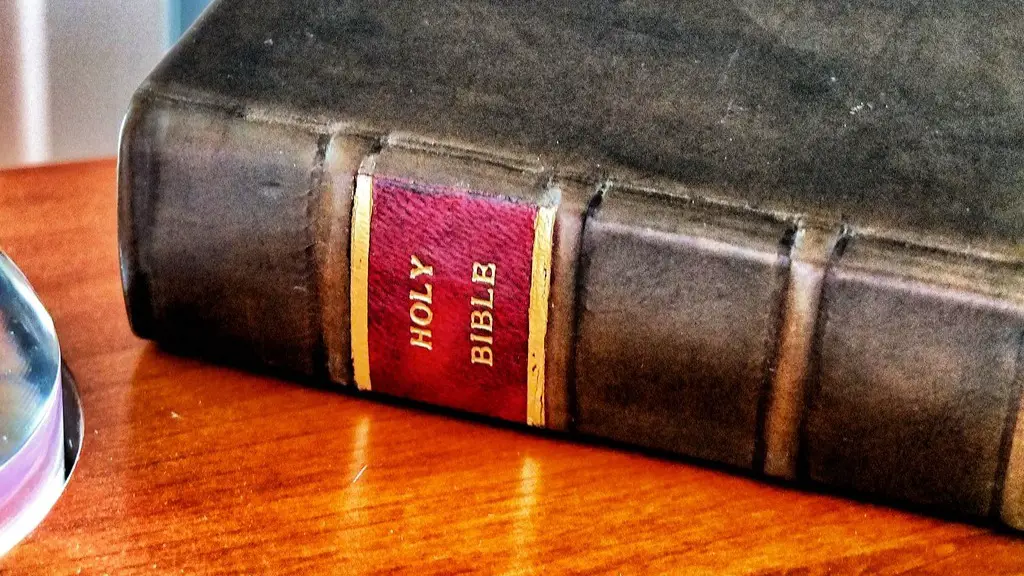Background information
Hezekiah is a well-known figure in the Bible. He was the 12th king of Judah, succeeding his father King Ahaz in 727BC. He reigned for nearly 29 years in Jerusalem, and was the last of the rulers from the Davidic dynasty. Hezekiah was a devout follower of the Lord, and followed the commands of the books of Deuteronomy and Leviticus. He is mentioned frequently throughout the Bible, often referred to as ‘the king of Judah’ or ‘the king of Israel’. During his reign, Hezekiah is credited with having improved the spiritual condition of the kingdom, and overseeing a time of national renewal. He is known as a great reformer, who removed foreign cults and reinstituted the worship of the Lord. He is also known as a great statesman, and negotiated a peace treaty with the Assyrians.
Evidence of Hezekiah’s Reformations
Hezekiah is known for having implemented a number of reforms throughout the kingdom. Hezekiah destroyed high places and idols, prohibited foreign gods, and reintroduced the Passover feast among other things. He also enlarged and strengthened Jerusalem’s defenses, and dug wells and constructed aqueducts. He also attempted to centralize government and expand the security forces. Hezekiah attempted to unify the northern and southern kingdom by reinstituting the Annual Feast of Booths in Jerusalem, and was responsible for building an elaborate network of fortifications in order to protect Jerusalem from the Assyrians. He also encouraged the inhabitants of Jerusalem to turn away from foreign gods and turn back to the Lord.
Hezekiah’s Role in Assyrian Conflict
The Biblical record also attests to Hezekiah’s role in the Assyrian conflict. He negotiated a peace treaty with the Assyrians, and survived a siege of Jerusalem by the Assyrian King Sennacherib in 701BC. The Bible records that Sennacherib accused Hezekiah of having broken the peace treaty, and looted Jerusalem before retreating. Hezekiah is also credited with having defended Jerusalem against the Philistines after they broke the peace treaty, and miraculously survived another assault by the Philistines.
Bible References to Hezekiah
Throughout the Bible, there are numerous references to Hezekiah and his reign. In the book of Kings, he is referred to as a righteous king who observed all of the Lord’s commandments and removed foreign gods from Jerusalem. In the book of Chronicles, Hezekiah has a more prominent role as a faithful leader who was granted a great vision by the Lord and led his people to safety. Hezekiah is also mentioned in the book of Isaiah, where he is referred to as a great reformer and praised for his efforts in restoring Judah’s religious integrity.
Impact on Future Generations
Hezekiah’s reign had a lasting impact on future generations. He is credited with introducing a number of reforms that would have lasting effects. His reforms helped to centralize government, unify the kingdoms, and remove foreign gods from the land. He also implemented measures to strengthen Jerusalem’s defenses, which allowed the city to survive its assaults by the Assyrians. Hezekiah’s reforms also had an impact on the spiritual condition of the kingdom, as he helped to reintroduce the Lord’s worship.
Analysis and Insights
Hezekiah is one of the most revered figures in biblical history, and his reforms and actions were instrumental in reshaping the spiritual and political landscape of the kingdom of Judah. His reign marked a return to the Lord’s worship, and his leadership and reforms allowed the kingdom to survive one of its darkest times. Hezekiah was a great reformer and statesman, and his legacy and reforms continue to be remembered and honored centuries after his death.
Political Achievements
Hezekiah was an incredible political leader and reformer, who successfully navigated the treacherous political landscape of the ancient Near East. He managed to secure a peace treaty with the Assyrians, and defended Jerusalem against Assyrian and Philistine invasions. He also introduced reforms that improved the security and safety of the kingdom. He abolished pagan worship, introduced new social laws, and centralized government. He also strengthened Jerusalem’s fortifications, which allowed it to survive a siege by the powerful Assyrian king, Sennacherib.
Faithful Disciples
Hezekiah was also known for having encouraged the worship of the Lord, and was beloved by those faithful to the Lord. He encouraged the Jews to repent and turn away from foreign gods and return to the Lord, and many obeyed his commands. His reforms also attracted the attention of prophets, who praised Hezekiah for his faithfulness to the Lord. He was a great role model for future generations, and his reign was an example of how a nation could return to purity and faithfulness.
Lessons from Hezekiah
Hezekiah’s reign provides a number of lessons that can be learned by modern-day leaders. He was a great reformer who sought to unify the kingdom, abolish foreign gods, and reintroduce pure worship of the Lord. He was a great political strategist, who managed to secure a peace treaty with the Assyrians and successfully defend Jerusalem against invaders. He was also a powerful role model for the faithful, who encouraged the nation to return to pure worshiping. Hezekiah is an example of how a leader can successfully navigate treacherous political and spiritual waters, and still emerge victorious.


